World Series events on AI
A series of events on the topic of AI and sustainable development across the world.
The initial series comprised 13 events held in 12 countries worldwide, spanning locations such as Abu Dhabi, Ottawa, Tel Aviv, Geneva, Berlin, Tokyo, Paris, and served as the main stage event for the European Commission’s DigiEduHack 2021 in Slovenia. Reports detailing the outcomes of these events are available in the IRCAI library.
This initiative has continued to significantly contribute to various IRCAI activities, including the NAIXUS Network of Centers of Excellence in AI and Sustainable Development.
EVENTS
16th ASEF Classroom Network Conference
Location: Ljubljana, Slovenia
Event: 16th ASEF Classroom Network Conference
Date: November 12 – 16, 2023
Host: Hosted by Asia-Europe Foundation (ASEF) and IRCAI
The ASEF 2023 conference program is available here.
The event will be streamed by Videolectures.NET. Link coming soon.
The 16th edition of the ASEF Classroom Network Conference (ASEFClassNet16) is a hybrid project organised by ASEF and IRCAI taking place both online and on-site throughout 2023. It aims to engage a diverse group of inter-generational participants on the topic of “Leading Change: Digital Transformation of Education in the Era of AI”. In this edition there will be two parallel activities and platforms to engage with: School Collaboration, Faculty Collaboration with Training & Capacity Building and Conference which will take place in person in Ljubljana, November 12 to 15, 2023. The 3-day long on-site conference will be organised to bring the participants of ASEFClassNet16 together. Teachers, teacher trainees, and academic experts from various countries across Asia and Europe will ensure a great inter-generational and diverse dialogue on the topic. Practitioners and experts connect to find innovative education solutions together through collaborative discussions, mentorships, and concrete actions.
PRESENTATION OF GLOBAL TOP 100 INTERNATIONAL LIST OF AI SOLUTIONS IN SDGs & LAUNCH OF IRCAI 2023 CALL
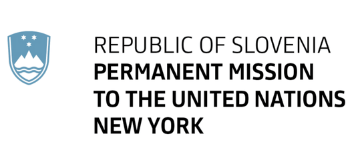
Location: Online
Event: 8th Multi-Stakeholder Forum on Science, Technology and Innovation for the SDGs (STI Forum 2023)
Date: May 4 2023, 08:30 – 09:45 (ET), 13:30 – 14:45 (GMT), 14:30 – 15:45 (CET)
Host: Hosted by IRCAI and Permanent Mission of Slovenia to the UN
In 2015, the UN set the Sustainable Development Goals, ambitious targets for a better and more sustainable future by 2030. To advance these Global Goals, we need to work together. That’s why we’re committing to bring to light the best of AI’s research, advanced technology, and computation and talents to accelerate progress. In 2022-23, IRCAI’s 2nd cohort of international projects in AI and SDGs provides consolidated evidence that a significant number of universities, nongovernmental organizations, nonprofits, startups, and multinational companies are working on AI projects related to the SDGs. As we are now past the halfway point of the goals , it’s clear that the global community has made great advances, however in many ways, we still have a long way to go. At this event, you can learn more about how teams across the world are already using AI to tackle the Global Goals. We will showcase the industries, domains, regions, and what they need to scale. We will present the 10 outstanding solutions including a subsection of applicants dealing in SDG 6 Clean water. IRCAI’s Global 100 report for 2023 will provide examples of a variety of solutions related to the SDGs, including the SDGs that are the focus of this year’s HPFL 2023, namely to demonstrate full implementation of the 2030
Agenda for Sustainable Development at all levels.
IRCAI GLOBAL TOP 100 RESULTS →
AGENDA
08:30 – 09:00 ET Opening
Moderated by Davor Orlic, COO IRCAI
Introductory speeches (3 min each)
- Amb. Boštjan Malovrh, Permanent Representative of the Republic of Slovenia to the United Nations in New York
- Igor Papič, Minister of Higher Education, Science and Innovation of the Republic of Slovenia
- Tawfik Jelassi, Assistant Director-General for Communication and Information, UNESCO
- Tanja Miškova, Ambassador-at-Large for Water Diplomacy, Ministry of Foreign and European Affairs of the Republic of Slovenia
Keynote Speech (5 min)
- Ambassador Lachezara Stoeva, President of ECOSOC
Presentation of the current work and plans of the IRCAI Centre (3 min)
- John Shawe-Taylor, Director IRCAI
09:00 – 09:45 ET Presentations of tangible real-life use of AI in solving sustainable development challenges (TOP100 projects)
Introduction to Top 100 (3 min each)
- Massimo Preziuso, Chair of Business and Impact Council IRCAI
- Jorge Clarke, Strategic Advisor for the IRCAI Global Top 100 program
Outstanding projects (3 min each)
- Anita Schjøll Abildgaard, Iris.ai – Researcher Workspace
- Anna Stünzi, Climate finance accounting via artificial intelligence
- Eduardo Ulises Moya Sanchez & Mario Arauz, Artificial Intelligence-Based Referral System for Patients With Diabetic Retinopathy in Jalisco
- Emily Charry Tissier, Mobius (Artificial intelligence for scalable and standardised whale monitoring)
- Evangelos Pournaras, Collective Learning (Human-machine Collective Intelligence at Smart City Scale)
- Ife Adebara, Afrocentric NLP (Afrocentric natural language processing)
- Jędrzej Świeżewski, Mbaza AI
- Josh Parrish, Pachama Originals
- Kasia Krasucka, Nowcasting of Solar Electricity Production
Introduction to SDG 6 solutions:
- Jorge Clarke, Strategic Advisor for the IRCAI Global Top 100 program
Speakers and projects, 3 minutes each:
- Florian Skene, MALENA (Machine Learning Environment, Social and Governance Analyst)
- Patrick Wood Uribe, UTIL sustainability analytics
- Catarina Violante, Smartex AI based Inspection System
- Vismands Menjoks, Wingo Deposit
09:50 – 09:55 ET Wrap up of the Top 100 session and AI Award announcement
Announcement by Davor Orlic, COO IRCAI
09:55 – 10:15 ET Q & A session, interventions from the floor
Moderated by Davor Orlic, COO IRCAI
10:15 ET Closing of the event
Launch of IRCAI 2022 Call for TOP 100 international list of AI solutions in SDGs and new UNESCO Global SDG Innovation Framework for AI innovation in pursuing SDGs
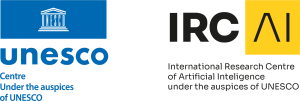
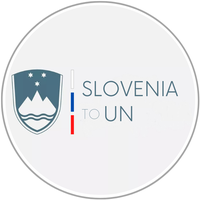
Location: Live Digital Event
Event: High-level Political Forum on Sustainable Development (HLPF)
Side event: Launch of IRCAI 2022 Call for TOP 100 international list of AI solutions in SDGs and new UNESCO Global SDG Innovation Framework for AI innovation in pursuing SDGs
Date: July 5 2022, 7:30 AM – 9.00 AM (ET), 12:30 PM London (GMT+1:00), 09:30 PM Tokyo (GMT+9:00)
Host: Hosted by IRCAI and Permanent Mission of Slovenia to the UN.
The Permanent Mission of Slovenia to the UN and the International Research Centre on Artificial Intelligence under the auspices of UNESCO (IRCAI), together with UNESCO, are organizing a side event at 2022 HLPF focused on launching the new call for TOP 100 best in AI and SDGs, based on an upgraded methodology released in partnership with UNESCO in new framework for evaluating artificial intelligence (AI) initiatives to tackle sustainable development goals (SDGs).
AGENDA
7:30 – 7:45 ET Opening and Introduction 3 minutes each
- Saša Jurečko, Deputy Permanent Representative of Slovenia to the UN
- Tawfik Jelassi, Assistant Director-General for Communication and Information, UNESCO
- Matjaž Krajnc, State Secretary at Ministry of Education, Science and Sport of the Republic of Slovenia
- Samuel Žbogar, State Secretary at Ministry for Foreign Affairs of the Republic of Slovenia
7:45 – 08:15 ET Round table on new call for TOP 100 solutions in AI for SDGs and new SDG Innovation Framework for AI innovation
Moderator: Mihajela Crnko, Chief Communications Officer and Partnerships Lead
- John Shawe-Taylor, Director IRCAI
- Vian Sharif, NatureAlpha founder (Outstanding category of the Global 2021 call)
- Prateek Sibal, Programme Specialist, Digital Innovation and Transformation Communication and Information Sector, UNESCO
- Tommaso Balbo di Vinadio, SciencesPo and the Paris College of Arts
- Katie Evans, Lead analyst IRCAI
- Massimo Preziuso, Chair of Business and Impact Council IRCAI
08:15 – 08:20 ET Anouncement of new call and Closing comments
- Davor Orlic, Chief Operations Officer IRCAI
9:00 ET Closing of the event
- A virtual Press Conference will be organised by IRCAI after the event (a separate link for that will be provided) for a more in-depth discussion with IRCAI and UNESCO representatives.
Launching a Global Network of AI Excellence Centres in Sustainable Development


![]()
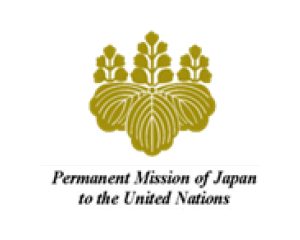
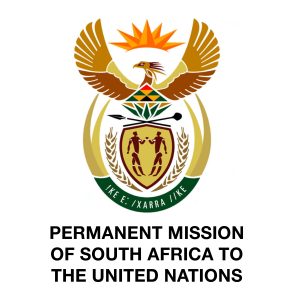
Location: Live Digital Event
Host: STI Forum – 7th Multi-stakeholder Forum on Science, Technology and Innovation for the Sustainable Development Goals
Date: 4 May 2022, 9:00 AM – 10.30 AM (ET), 02:00 PM London (GMT+1:00), 10:00 PM Tokyo (GMT+9:00)
Hosted by IRCAI and Permanent Mission of Slovenia to the UN, co-sponsored by Permanent Mission of Japan to the UN and Permanent Mission of South Africa to the UN
Description
The Permanent Mission of Slovenia to the UN and the International Research Centre on Artificial Intelligence under the auspices of UNESCO (IRCAI) are organizing a side event launching a Global Network of Excellence Centres in artificial intelligence (AI) for sustainable development goals (SDGs).
AGENDA
9:00 – 9:10 ET Opening and Introduction 3 minutes each
- Ambassador Boštjan Malovrh, Permanent Representative of Slovenia to the UN
- Ambassador Tetsuya Kimura, Permanent Representative of Japan to the UN
- Tshilidzi Marwala, Vice Chancellor and Principal, University of Johannesburg
- Marielza Oliveira, Director for Partnerships and Operational Programme Monitoring, Communications and Information Sector, UNESCO
9:10 – 9:15 ET Keynote
- Maria Fasli, UNESCO Chair in Analytics and Data Science, Executive Dean, Faculty of Science and Health at University of Essex
9:15 – 9:20 ET Introduction into the Network
- John Shawe-Taylor, Director IRCAI
9:20 – 10:30 ET Flash talks presenting the history, aim, objectives, composition, activities, programmes, and technology focus of the Network 3 minutes each
Network portfolio and history
- Samuel Kaski, Aalto University, ELISE Network Coordinator
- Paul Lukowicz, DFKI, HumaneAI Network Coordinator
Network as a catalyst for research and innovation
- Matthew Smith, Senior Program Specialist, IDRC
- Nelson González, Head Global Impact Computing, AWS
Network solutions and evidence of impact in real-life
- Kathleen Siminyu, Machine Learning Fellow, Mozilla Foundation
- Nuria Oliver, ELLIS Unit Alicante Foundation
Network connecting worldwide communities of practice
- Ulrich Paquet, Deep Learning Indaba, DeepMind
- Nuria Oliver, ELLIS Unit Alicante Foundation
Network reach across all UN regions
- Alexandre F. Barbosa, Director Cetic
- Emmanuel Letouzé, Director Data-Pop Alliance
10.30 – 10:50 A virtual Press Conference will be organised after the event with speakers available for questions:
- John Shawe-Taylor, Director IRCAI
- Emmanuel Letouzé, Director Data-Pop Alliance
SIDE EVENT: "FROM COMMITMENT TO ACTION – PRESENTING AI SOLUTIONS FOR THE SDGs"
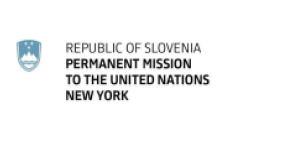
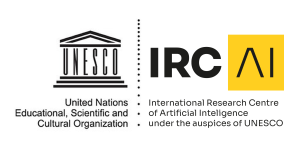
Location: online
Date: 18 February, 9.00-10.15 (ET)
The event will also be streamed on YouTube channel of IRCAI: Link to stream
The Permanent Mission of Slovenia to the UN and the International Research Centre on Artificial Intelligence under the auspices of UNESCO (IRCAI) are organizing a side event focused on artificial intelligence (AI) and solutions this technology can provide for the Sustainable Development Goals (SDGs).
AI holds the potential to serve humankind and to bring benefits to individuals, countries and businesses. Furthermore, AI can also help tackle social, economic and environmental challenges: poverty, climate change and inequality. As such, it can contribute to the efforts of the global community to attain sustainable development goals.
The International Research Center Artificial Intelligence is a new Category 2 centre under the auspices of UNESCO and the only one directly focused on Artificial Intelligence. It’s associated through formal arrangements approved by the UNESCO General Conference and is committed to engage in supporting UNESCO’s strategic programme objectives. IRCAI is partially directly funded by the Republic of Slovenia where it is located, but its scope and reach are global.
IRCAI functions as a Network of institutions and experts across the world, and a clearinghouse for relevant global AI projects. It is available to provide an open and transparent dialogue that, in addition to research on AI, by specifically addressing SDGs through AI technologies, and discussions in the AI field, can provide policy support to stakeholders around the world, action plans and research roadmaps in the field of AI.
The Permanent Mission of the Republic of Slovenia to the UN has been working closely with IRCAI since its inception and we intend to organise a series of events also this year.
Our activities come after IRCAI has successfully co-organized 13 events in close cooperation with Slovenian diplomatic representations in 12 countries last year, in the World Series Events on AI.
This event will, among other, focus on presentation of key advances in AI technology for SDGs, on the state-of-the-art AI to leverage opportunities for energy efficiency in energy-intensive industries, re-engineering for the way societies produce and consume and on improved technology to effectively achieve the SDGs.
The solutions are part of the IRCAI Global Top 100, a list of the top 100 projects solving problems related to the 17 sustainable development goals from all around the world. These are the initial cohort of the Accelerator that IRCAI will be setting up in 2022.
AGENDA
9:00 – 9:15 ET – Introduction and Welcome
Opening and Introduction
• Ambassador Boštjan Malovrh, Permanent Representative of Slovenia to the UN
• Tawfik Jelassi, Assistant Director-General for Communication and Information, UNESCO
• Maria-Francesca Spatolisano Acting Envoy, Office of the Secretary General’s Envoy on Technology
Keynote Speech
• Ambassador Collen Vixen Kelapile, Permanent Representative of Botswana to the UN, President of ECOSOC
Presentation of the current work and plans of the IRCAI Centre
• John Shawe-Taylor, Director IRCAI
09:20 – 9:50 ET- Presentations of tangible real-life use of AI in solving sustainable development challenges (TOP100 projects)
Introduction:
• Massimo Preziuso, Chair of Business and Impact Council IRCAI
Speakers and outstanding projects, 3 minutes each:
• Bertie Vidgen, Rewire (SDG 5, 9, 16)
• Angela Jorns, ASMSpotter (SDG 12, 15)
• Catherine Nakalembe, NASA Harvest (SDG 1, 2, 10, 13, 15, 17)
• Jonas Gramse, FAIR Forward – Artificial Intelligence for All (SDG 3, 5, 7, 9, 10, 13, 17)
• Lyric Jain, Logically Intelligence (SDG 16)
• Vian Sharif, NatureAlpha Biodiversity & nature metrics platform (SDG 6, 13, 14, 15, 17)
• Vincenzo Di Nicola, An AI-powered classification email system to help the Italian Public Administration to better serve citizens (SDG 8, 9)
• Ulrich Scharf, SkillLab (SDG 1, 4, 8, 10)
• Mohammed Ashour, Novel Application of Advanced Manufacturing Approaches to High Quality Protein (SDG 2, 3, 9, 12, 13, 17)
9:50 – 9:55 ET – Wrap up of the Top 100 session and AI Award announcement
• Davor Orlic, Chief Operations Officer IRCAI: announcing the TOP 100 list analysis and report and AI awardee Adriana Eufrosina Bora, Researcher at QUT
9:55 – 10:15 ET – Q & A session, interventions from the floor
Moderated by Ambassador Boštjan Malovrh, Permanent Representative of Slovenia to the UN
10:15 ET – Closing of the event
A virtual Press Conference will be organised by IRCAI after the event (a separate link for that will be provided) for a more in depth discussion with Outstanding project presenters and IRCAI representatives.
AI and future of work
Location: Berlin, Germany
Artificial intelligence is gaining ground in many areas of our operations as an important element. We are also increasingly confronted with artificial intelligence in the world of work. Artificial intelligence is no longer the future, but the present, as many employers around the world use a variety of technological solutions on a daily basis in both the public and private sectors. However, artificial intelligence in the world of work raises not only questions about technological solutions, but also many others. Even with the increased use of artificial intelligence, we face similar dilemmas as with any technological revolution – not only the fear of technological unemployment, but also the aspect of knowledge and competencies that workers need with new technologies. The use of different technologies based on the use of artificial intelligence is thus not only a technological and economic but also a social issue. That is why dialogue is necessary: both between the social partners and in societies in general. In order for artificial intelligence to contribute to the well-being of all, we need appropriate public policies and investment to strengthen investment in people and their skills to make it easier to take advantage of the opportunities offered by (technological) changes in the world of work.
AI and Decarbonizing Construction
Location: London, United Kingdom
Date: Live-streaming will begin at 18:30 BST, 30 June 2021
This webinar is hosted by Carbon Re together with the UNESCO International Research Centre on Artificial Intelligence (IRCAI), in association with London Climate Action Week and with the generous support of HumaneAI-Net.
According to the Climate Change Committee, greenhouse gas emissions from manufacturing and construction were 66 MtCO2 in 2018 – 12% of the UK total. If there is a lesson from the pandemic it is that we need to multiply our efforts to mitigate climate change, if we are to avoid economic, social and political disaster. Yet, we can’t achieve net zero goals without decarbonizing manufacturing and construction. We need to tackle the hard problems today. This means industrial policies, R&D funding, business support and innovation that accelerate the zero-carbon transition needed to address these challenges.
Join us to hear from world leading experts in AI, business and policy discussing current applications and high-potential use cases.
AGENDA
Introduction by
Simona Leskovar Ambassador of the Republic of Slovenia to the United Kingdom of Great Britain and Northern Ireland
Keynote speech by Professor John Shawe-Taylor
Professor John Shawe-Taylor is the UNESCO Chair in AI, and Director of the International Research Center on Artificial Intelligence under the auspices of UNESCO
Followed by a panel discussion with
Sana Khareghani, Head of Office for Artificial Intelligence
The Office for AI is a joint unit between Department for Digital, Media, Culture and Sport (DCMS) and the Department for Business, Energy and Industrial Strategy (BEIS).
Jade Cohen, Co-Founder and CPO at Qualis Flow
Qualis Flow works with construction teams to enable them to track and manage their social and environmental impact, and take a data driven approach to improving that impact.
Mark Enzer OBE, CTO of Mott MacDonald and Head of the National Digital Twin Programme at the Centre for Digital Built Britain
The Centre for Digital Built Britain is a partnership between the BEIS and the University of Cambridge. It seeks to understand how the construction and infrastructure sectors can use a digital approach to better design, build, operate and integrate the built environment.
Professor Aidan O’Sullivan is Co-Founder and CTO at Carbon Re, Associate Professor in Energy and AI at the UCL Energy Institute and Programme Chair for AI and Climate Change at the International Research Center on Artificial Intelligence (IRCAI) under the auspices of UNESCO.
AI and development
Subtitle: Data economy: human-centric approach at the forefront
Date: 16.00 CET, 22 September, 2021
Location: Geneva, Switzerland and online
Registration is free and can be done through this link: https://www.giplatform.org/events/data-economy-human-centric-approach-forefront.
The European Union Delegation to the United Nations in Geneva, the Permanent Mission of Switzerland to the UN in Geneva, the Permanent Mission of Slovenia to the UN Office and other international organisations in Geneva in capacity as Presidency of the Council of the EU, and the Geneva Internet Platform invite you to a series of dialogues – From Geneva: Reflections on digital future – on issues of importance for the Geneva and global audiences. Linked to International Geneva as a global digital policy hub, the dialogues focus on priority issues around current developments, including the recent process of the UN Secretary’s General Roadmap for Digital Cooperation.
The new data era is just starting. Our approach towards handling data today will set the direction of our digital future. To inspire organisations to create value and positively contribute to shaping the future of society, we look into the data economy – what it means for countries, companies, and citizens. In the spirit of the human-centric approach, protecting privacy and data management practices should not impede innovation and economic growth.
The following questions will be explored:
- Rethinking the data supply chain: how to provide a trusted, fair, and innovative data economy;
- How to approach a perceived trade-off between the data potential and the protection of individual rights?
- Engaging citizens: How can we move from users to becoming active digital citizens?
- What roles for governments, civil society and the private sector?
AGENDA
Speakers:
Dr Maja Bogataj Jančič, Co-Chair of the Data Governance Working Group, Global Partnership on Artificial Intelligence
Ms Lene Wendland, Chief, Business and Human Rights, Office of the High Commissioner for Human Rights
Ambassador Thomas Schneider, Head of International Relations at the Federal Office for Communications of Switzerland (OFCOM)
Mr Paul-Olivier Dehaye, PersonalData.io, MyData.org, Hestia.AI
Mr Pascal Marmier, Secretary General, Economy of Trust Foundation, SICPA
AI and Environment
Subtitle: Digitalisation powering environmental protection
Location: Geneva, Switzerland
Date: 14 October, 2021
The European Union Delegation to the United Nations in Geneva, the Permanent Mission of Switzerland to the UN in Geneva, the Permanent Mission of Slovenia to the UN in Geneva (currently holding the Presidency of the Council of the EU), and the Geneva Internet Platform, in partnership with the International Research Centre for Artificial Intelligence (IRCAI) invite you to a series of dialogues – From Geneva: Reflections on digital future – on issues of importance for the Geneva and global audiences. Our next dialogue, on 14 October 2021, is on Digitalisation powering environmental protection.
The digital revolution is changing the way we work, live, and solve challenges. New technologies offer ground-breaking opportunities for environmental protection and climate action. For example, AI can strengthen climate predictions, enable smarter decision-making for decarbonising industries, and anticipate the effects of extreme weather.
As we strive for digital economies that will put people at the heart, foster international development, and protect human rights and freedoms, we also need a better understanding of the environmental footprint of our economic development, including ICT’s growing carbon footprint.
The UN Secretary General’s Roadmap for Digital Cooperation warns that operations related to ICT are expected to represent up to 20% of the world’s demand for electricity. One third stems from data centres alone.
In our dialogue, we will therefore ask, how can we truly benefit from the technology’s environmental solutions and use the digital revolution to advance environmental stewardship? How can we appropriately harness digital opportunities while limiting adverse effects of digitalisation on the environment? How can we build strong partnerships among regions to support digital transition that powers environmental protection across the globe?
AGENDA
Moderator
Tereza Horejsova, Projects and Partnerships Director, Diplo
Speakers:
Ilias Iakovidis, Advisor, Green digital transformation, DG CONNECT, European Commission
David Jensen, Coordinator of the Digital Transformation Task Force at the United Nations Environment Programme
Mitja Jermol, Program Committee Chair in AI and Circular Economy, International Research Centre for AI
Reyna Ubeda, Project Officer, International Telecomunication Union
Flurina Wäspi, Coordinator IGF Policy Network on Environment and Digitalisation
AI and art
Subtitle: The Future of Living
Location: Brussells, Belgium
Date: 19 – 20 October, 2021
No one can predict the future of society in coexistence with machines, but it should beclear that our future will be much more predictable if we responsibly decide todaywhat kind of future we want. You can be part of the reflection on AI together withartists and researchers. Join the debate during our 2-days Symposium The Future of Living on 19 – 20 October 2021 at Bozar, Brussels.
This two-day multidisciplinary conference and hack-a-deux on the impact of artificialintelligence and art on life is prepared by fourteen members of the Brussels EUNICcluster, led by Slovenia, in cooperation with BozarLab. The conference aims to raise theprofile of the contribution of art and science, research and innovation, and their actorsto the quality of life in the present and the new European Bauhaus.
The conference is curated by Jurij Krpan (Kapelica Gallery, SI) and Pau Waelder (PT).Be part of the future by visiting https://thefutureofliving.eu and you will be intrigued byAI waiting to have a dialogue with you!
Programme and tickets at https://www.bozar.be/en/calendar/symposium-future-living.
AI and climate change
Location: Ottawa, Canada
Date: 26 October, 2021
The panel discussion will provide insight into the application of artificial intelligence to combat climate change, build resilience and reduce the vulnerability of all societies to the impacts of climate change, and highlight the opportunities that artificial intelligence can provide in the collective effort to achieve zero greenhouse gas emissions. The panel discussion, which is expected to be virtual, will bring together the fields of climate change and artificial intelligence, the use of artificial intelligence and applied technologies to combat climate change across disciplines. Experts in the field of artificial intelligence, climatology and climate change will participate in the panel discussion.
Event Report:
World Series on AI Event Report: AI for Climate Change Mitigation and Adaptation
AI and public health
Subtitle: Harnessing AI’s Power for Health
Location: Geneva, Switzerland
Date: 3 November, 2021
New technologies have had a revolutionary impact on healthcare since the early 1990s. At first complex, costly and limited process developed into an advanced, assimilated and mainstream support of the society with a remarkable value for our health.
From monitoring the impact of policies on population health to technologies that allow people to manage their healthy habits, from mobile health (mHealth) to wearable devices, from telehealth to telemedicine, the power of computing platforms, rapidly developing software and increasing connectivity serve the humankind to improve our lives.
With the use of robotics in healthcare, utilization of machine-learning techniques and software and spread of sophisticated tools that harness the power of AI, the AI is transforming the healthcare sector and the future of public health. As data, analytics and AI drive innovation across the sectors, COVID-19 pandemic additionally triggered acceleration of modelling and predicting demands and solutions, both for diagnosing and for drug development. Intellectual property laws will have to find a way to adapt in order to enable innovation and protect future developments and investments.
At the same time, education, investment, multiplication of effects, equal distribution and development that takes into account safety and security of the citizens are some of the crucial activities that we as a society must undertake when it comes to the AI and the future of health. How can we reach long-lasting results? How can we harness the power of AI for public health and reduce the risks related to the use of new technologies? How can we make sure that developing countries benefit from the rapid technological development equally and meaningfully? What are the implications of the new technologies in the field of intellectual property?
AGENDA
Moderator
Tereza Hojserova, Geneva Internet Platform
Speakers
Amandeep Singh Gill, CEO and Director of Digital Health & AI Research Collaborative (I-DAIR)
Dr Vida Groznik, Researcher, University of Ljubljana; Assistant professor, University of Primorska; CEO NeusDiagnostics
Catherine Holloway, Professor and Academic Director, Global Disability Innovation Hub at UCL, PC Chair in AI and Assistive Technologies at IRCAI
Dr Andreas Alois Reis, Co-Lead of the Global Health Ethics Team in the Division of the Chief Scientist, World Health Organization
Ulrike Till, Director, Frontier technologies, on AI and IP, World Intellectual Property Organization
Event Report:
World Series on AI Event Report: Harnessing AI’s Power for Health
AI and robotics for smart society 5.0
Subtitle: Promoting a Smart Society 5.0 through AI and Robotics
Location: Tokyo, Japan
Date: 11 November, 2021
Slovenia has put forward many advanced solutions, using artificial intelligence and robotics, for the implementation and creation of a smart society 5.0. We would like to introduce some examples of close collaboration with Japan in the fields of art, industry and in policies in general. Japanese technology group Yaskawa has officially opened its new robot production facility with European robotics development centre in Slovenia in 2019. Slovenian artist Maša Jazbec from DDTLab carried out scientific and artistic experiments of interpersonal interactions together with the Laboratory of Professor Hiroshi Ishiguro (and is now collaborating with Yaskawa on projects of creative robotics.
Hitachi is collaborating in the implementation of a smart city, creating smart electricity grids in a few Slovenian cities University Rehabilitation Center Soča from Slovenia is cooperating with Toyota and the University Fujita in the field of rehabilitation robotics.
UNESCO International Research Centre for Artificial Intelligence (IRCAI), established in 2020 in Slovenia is seeking partnerships with international organizations, governments, companies, NGOs, universities, research institutes, AI consortia and government agencies also in Japan.
In the future, Slovenia would like to enhance cooperation with Japan and explore potential in AI and robotics further.
AGENDA
18:45 – 18:50
Pre-recorded speech by H.E. Minister for Digital Transformation of Slovenia, Mr. Mark Boris Andrijanič
18:50 – 18:55
Speech by Vice Minister for Digital Policy, Digital Agency of Japan, Mr. Koichi Akaishi
19:00 – 19:10
Speech by the Distinguished Professor at Intelligent Robotics Laboratory, Osaka University, Dr. Hiroshi Ishiguro
19:10 – 19:15
Video by Head of DDT Lab, Dr. Maša Jazbec
19:15 – 19:20
Video presenting activities of IRCAI
Pre-recorded speech by Director of UNESCO International Research Centre for Artificial Intelligence (IRCAI ), Prof. Dr. John Shawe Taylor
AI and global policy
Location: OECD, Paris, France
On April 21, 2021, the EU Commission adopted the AI Regulation, a proposal for a regulation on “artificial intelligence systems” (AI systems), which it describes as “the first ever legal framework on AI.” The AI Regulation will impose significant obligations impacting businesses across many, if not all, sectors of the economy. The combination of the first-ever legal framework on AI and a new Coordinated Plan with Member States will guarantee the safety and fundamental rights of people and businesses, while strengthening AI uptake, investment and innovation across the EU. (Characteristics of future risks, technological approach and demands, different dimensions of risks).
AI and R&D strategies
Subtitle: Israel / Slovenia Roundtable
Location: Tel Aviv, Israel
Date: 25 November, 2021
Time:11AM GMT+2 / 10AM CET
A round table on artificial intelligence and research and development strategies will be held in cooperation with the Embassy of the Republic of Slovenia in Tel Aviv, the Israeli Ministries of Innovation, Science and Technology and Foreign Affairs, the Israeli Innovation Authority, Tel Aviv University – Blavatnik Interdisciplinary Cyber Research Center and the International Research Center for Artificial Intelligence (IRCAI), Slovenia.
Hosted by Ambassador of the Republic of Slovenia to the State of Israel, Andreja Purkart Martinez
AGENDA
Opening Remarks
Minister Mark Boris Andrijanič, Minister for Digital Transformation, Republic of Slovenia
Minister Orit Farkash Hacohen, Minister of Innovation, Science and Technology, State of Israel
Welcome Address
Ziv Katzir, Head of the National Program for AI Infrastructure, Israel Innovation Authority
Keynote
Major General (Ret) Professor Isaac Ben-Israel, Director Blavatnik ICRC, Tel Aviv University – A glabal perspective to fostering AI
Academic Perspective
Marko Grobelnik, Digital Champion of Slovenia, European Commission; Researcher, AI Lab @ Jozef Stefan Institute
Industry Perspective
Dr. Blaž Fortuna, CEO and Co-founder at Qlector
Yorai Fainmesser, General Partner at Disruptive AI Venture Capital, Artificial Intelligence strategic expert
FEEDBACK
Please fill out this form and give us feedback after each event. Thank you!
CONTACT
International Research Centre
on Artificial Intelligence (IRCAI)
under the auspices of UNESCO
Jožef Stefan Institute
Jamova cesta 39
SI-1000 Ljubljana
info@ircai.org
ircai.org
FOLLOW US
The designations employed and the presentation of material throughout this website do not imply the expression of any opinion whatsoever on the part of UNESCO concerning the legal status of any country, territory, city or area of its authorities, or concerning the delimitation of its frontiers or boundaries.
PRIVACY POLICY